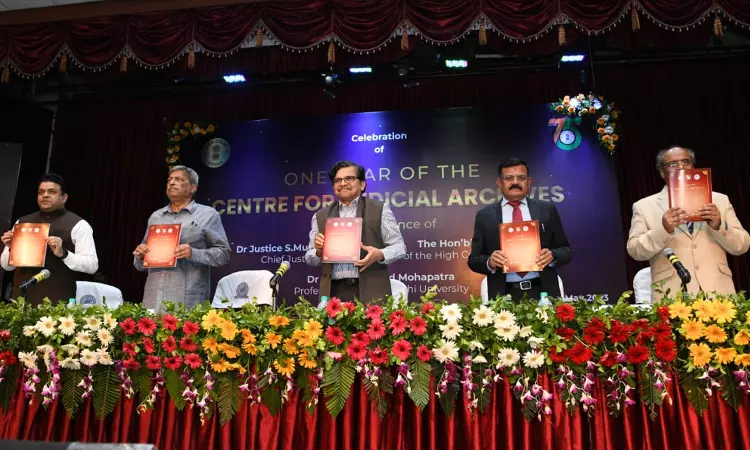‘Centre For Judicial Archives’: Odisha’s Judicial Data Repository Celebrates First Anniversary
Jyoti Prakash Dutta
12 May 2023 9:48 AM IST

Next Story
12 May 2023 9:48 AM IST
The first anniversary of establishment of the Centre for Judicial Archives (CJA) was celebrated on Wednesday under the aegis of the Orissa High Court at the Odisha Judicial Academy, Cuttack. Dr. Prabhu Prasad Mohapatra, Professor of History, Delhi University was the Chief Guest of the function. Dr. Justice S. Muralidhar, Chief Justice and the Judges of the High Court of Orissa...
